Catherine, the Princess of Wales, née Kate Middleton, has disclosed that she has cancer and is undergoing chemotherapy — though in a video announcement Friday, she did not say what kind of cancer or reveal details of her treatment.
Here’s what is known:
What kind of surgery did Kate have?
Kate had what was described as abdominal surgery on Jan. 16. The news wasn’t announced until the next day, when Kensington Palace revealed that Kate was recovering from a planned operation.
At the time, officials said her condition wasn’t cancerous but did not specify what kind of surgery, saying only that it was successful.
When was Kate’s cancer found?
During the video announcement Friday, Kate said: “Tests after the operation found cancer had been present,” and that she was in the early stages of treatment.
She didn’t say what kind of cancer was found, nor did she give details of her chemotherapy. The statement from Kensington Palace said Kate found out about the cancer after post-surgery tests were done.
Is it unusual to find cancer after surgery?
While it’s rare to find cancer after surgery for a noncancerous problem, it does happen in about 4% of such surgeries, said Dr. Yuman Fong, a surgeon at City of Hope cancer center in Southern California.
“That 4% figure represents someone who’s going to the operating room for what is thought to be benign disease” such as a procedure to remove the gallbladder or ovarian cysts, Fong said.
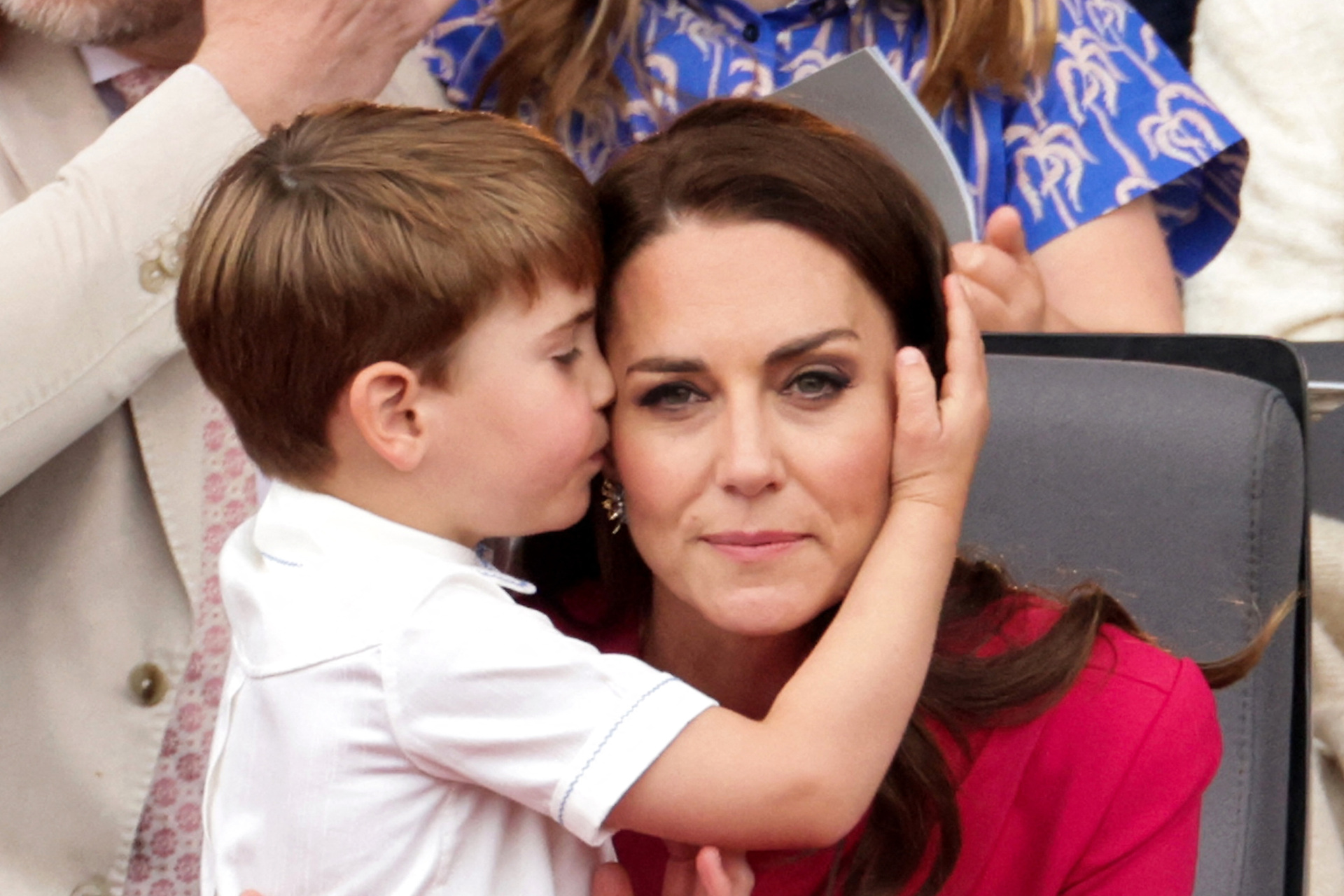
Catherine is hugged by her son Louis of Cambridge during the Platinum Pageant concert in London on June 5, 2022, as part of Queen Elizabeth II’s platinum jubilee celebrations. (CHRIS JACKSON/POOL/AFP via Getty Images)
Is it unusual to find cancer in someone so young?
Yes, cancer is rare in young adults. But in developed countries, rates of some cancers are rising among younger adults. Kate is 42.
“We hate it when young people get cancer, but at the same time, they are the ones that recover best,” Fong said.
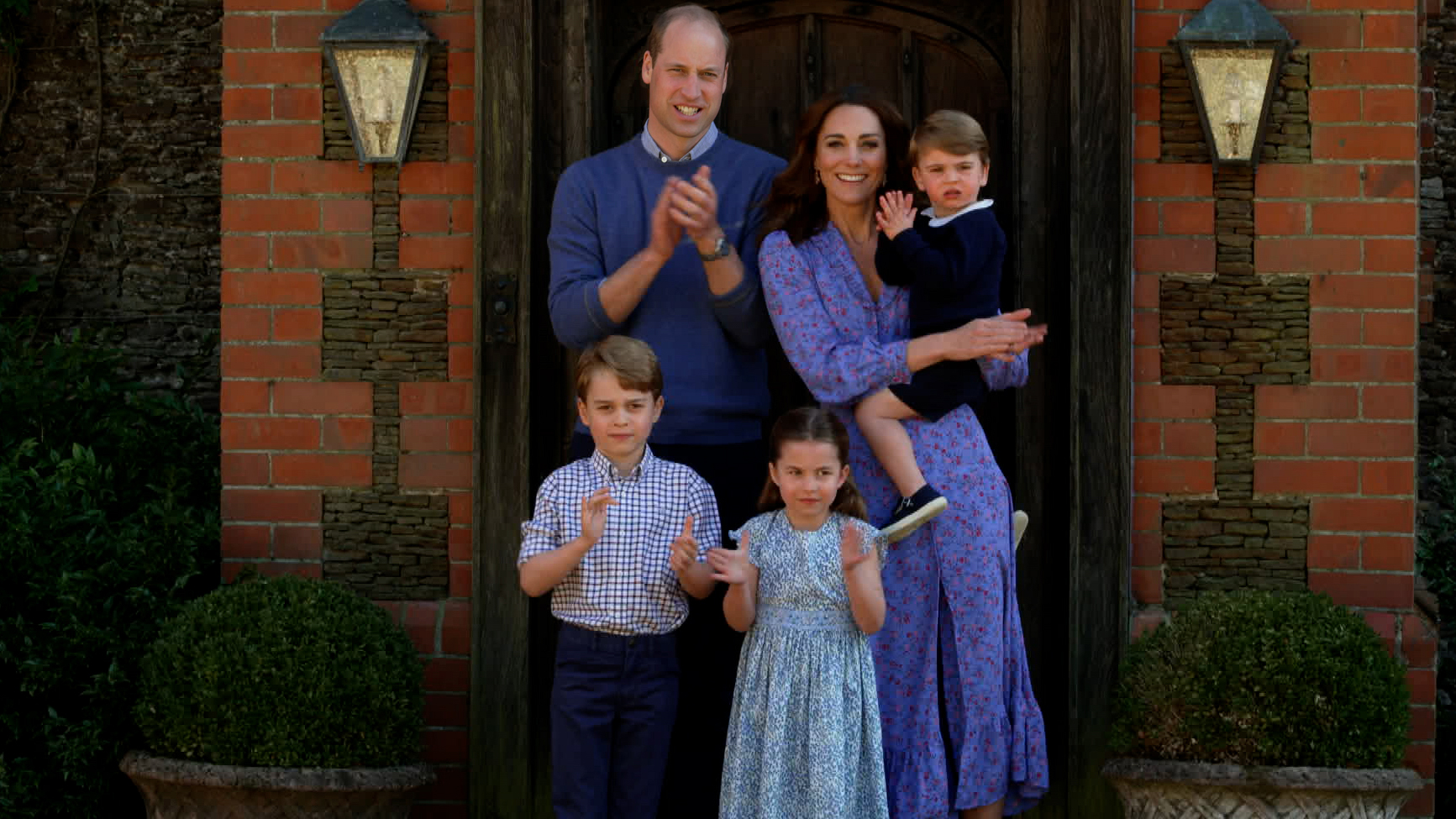
In this screengrab, Prince William, Duke of Cambridge, Catherine Duchess of Cambridge, Prince George of Cambridge, Princess Charlotte of Cambridge and Prince Louis of Cambridge clap for NHS carers as part of the BBC program during the COVID pandemic on April 23, 2020, in London, England. (Comic Relief/BBC Children in Need/Comic Relief via Getty Images)
What kind of treatment is Kate having?
The palace statement said no details would be provided about her cancer or her treatment, other than she started it in late February.
“We will not be sharing any further private medical information. The Princess has a right to medical privacy as we all do,” the statement said.
After successful surgery, chemotherapy is often used to help kill any stray cancer cells and to prevent the cancer from coming back. Treatments have evolved, and when chemo is used now, it’s sometimes for shorter periods or lower doses than it once was.
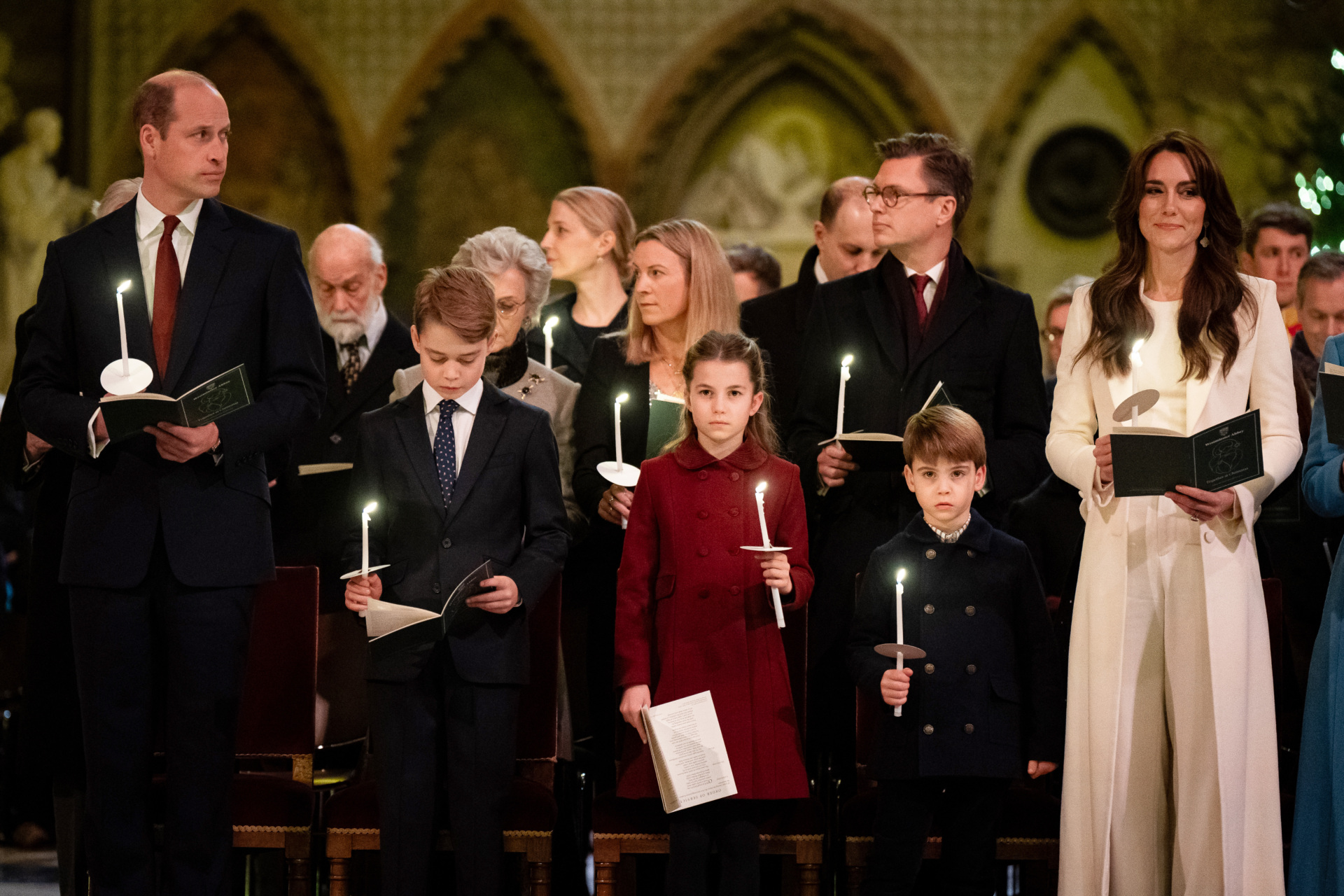
Prince William, Prince of Wales, Prince George, Princess Charlotte, Prince Louis, and Catherine, Princess of Wales attend during a Christmas carol service at Westminster Abbey on December 8, 2023, in London, England. (Aaron Chown – WPA Pool/Getty Images)
What are the side effects of chemotherapy?
Fatigue, nausea, tingling in the hands and feet, and sometimes hair loss are side effects of chemotherapy, said Dr. Monica Avila of Moffitt Cancer Center in Tampa, Florida. But there are medications for improving these side effects. And cold caps that cool the scalp can prevent hair loss, Avila said.
“A patient can take anywhere from a few weeks to a month or two to recover from those effects,” Avila said. Numbness and tingling can take longer to disappear, she said.
How long will Kate’s treatment last?
The palace statement said that will be up to her doctors. “The princess is now on a recovery pathway,” the statement said.
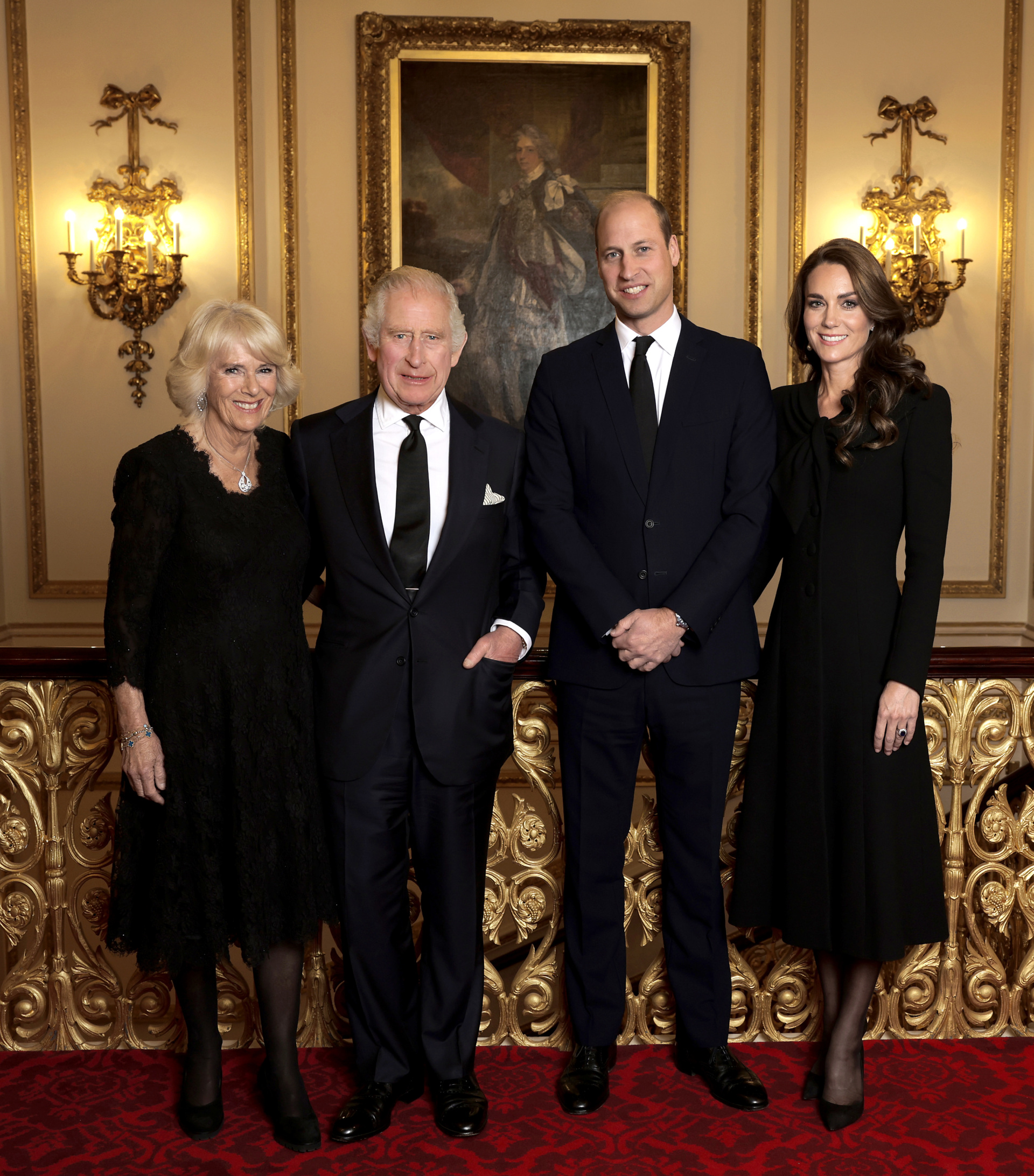
Camilla, Queen Consort, King Charles III, Prince William, Prince of Wales and Catherine, Princess of Wales, pose for a photo at Buckingham Palace on September 18, 2022, in London, England. (Chris Jackson/Getty Images For Buckingham Palace)
The Associated Press Health and Science Department receives support from the Howard Hughes Medical Institute’s Science and Educational Media Group. The AP is solely responsible for all content.
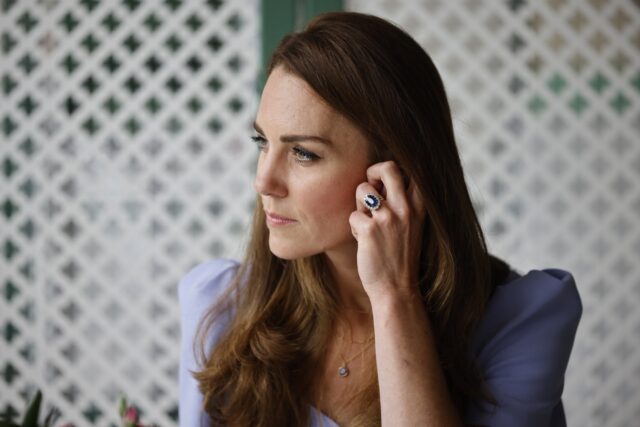


COMMENTS
Please let us know if you're having issues with commenting.